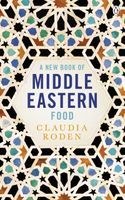Advertisement
The Kitab al-Tabikh
Appears in
Published 1986
In 1934 the Iraqi scholar, Dr
In the preface, after the obligatory praises to God and some remarks on the importance of good wholesome eating, the author says he wrote the book for his own use and for those interested in ‘the Art of Cooking’. He divides pleasure into six classes: food, drink, clothes, sex, scent and sound. Of these, he says, the noblest and most consequential is food and he subscribes to the doctrine of the pre-excellence of the pleasure of eating above all other pleasures. For that reason he composed the book. Al-Baghdadi chose to include from among the recipes popular at the time only those which he personally liked, and discarded what he describes as ‘strange and unfamiliar dishes, in the composition of which unwholesome and unsatisfying ingredients are used’. There is general advice about the necessity of keeping nails trimmed and pots clean, or rubbing copper pans bright with brick dust, potash, saffron and citron leaves, and on such things as the value of using fresh and strongly scented spices ground very fine.

